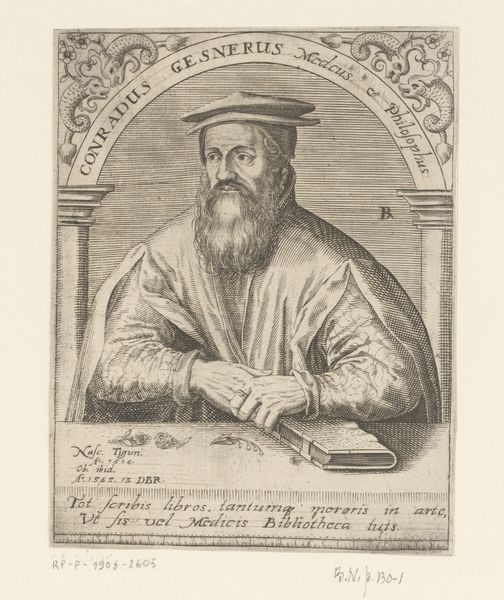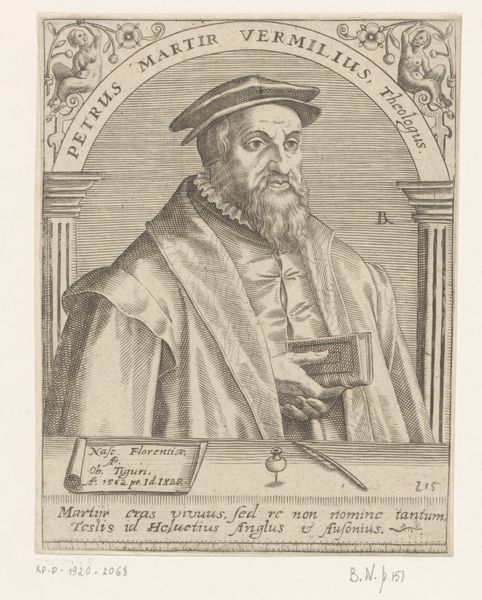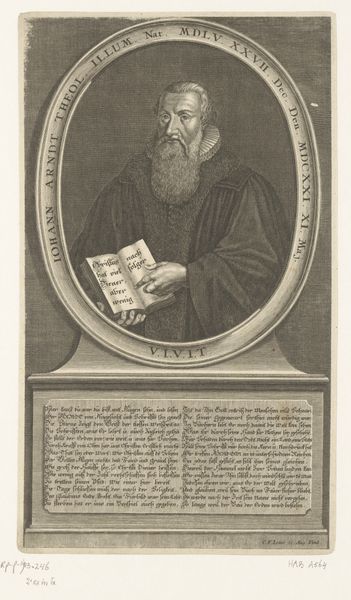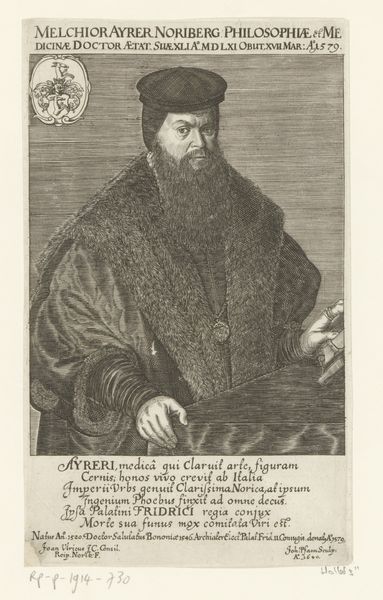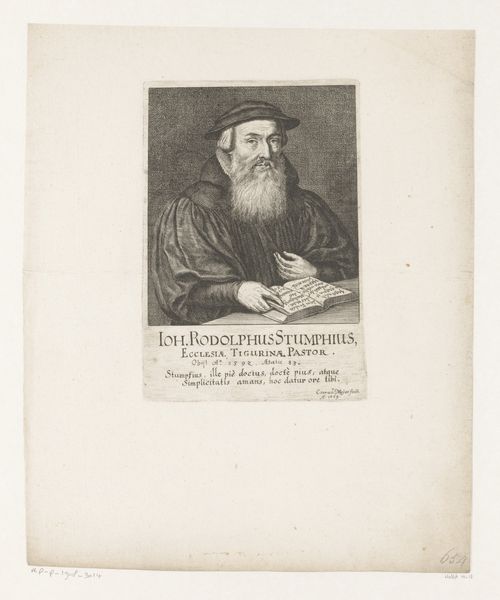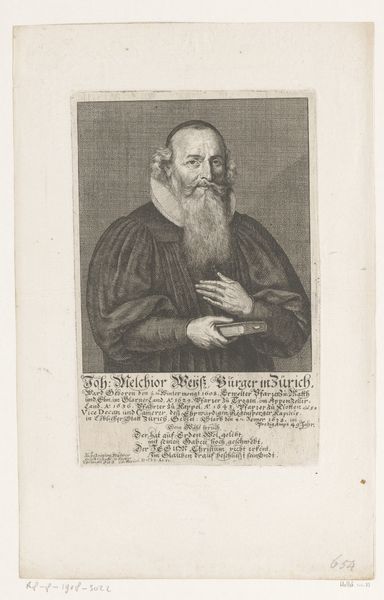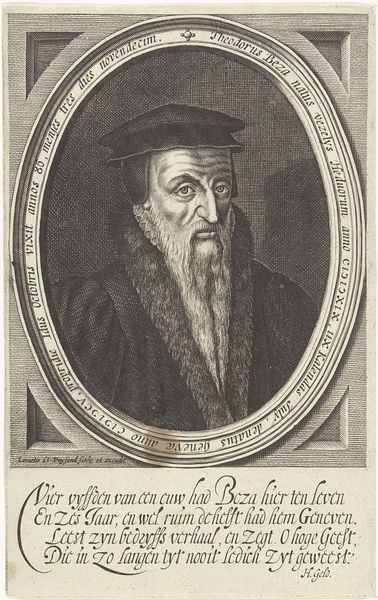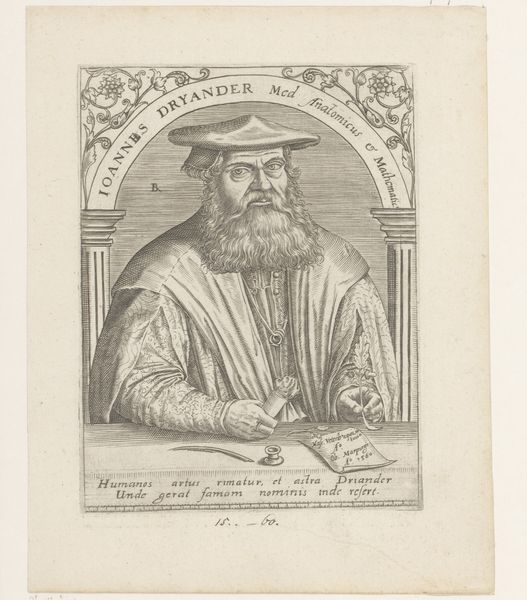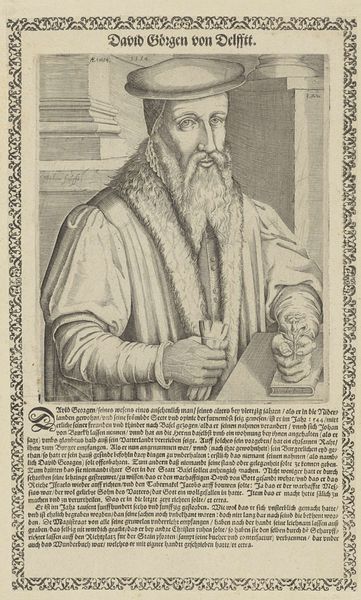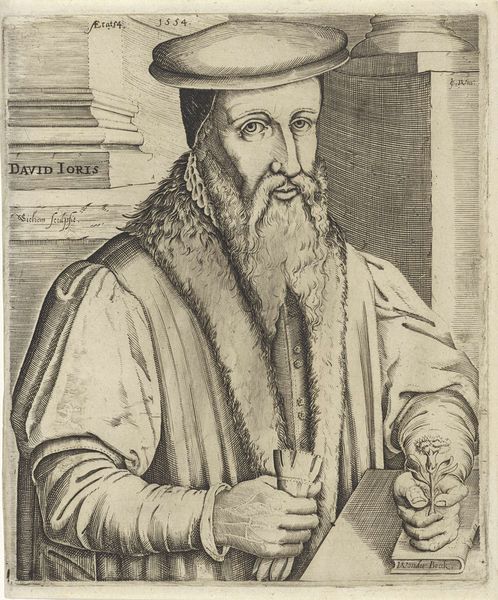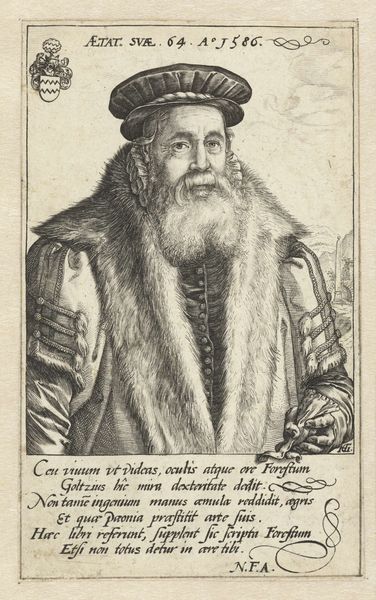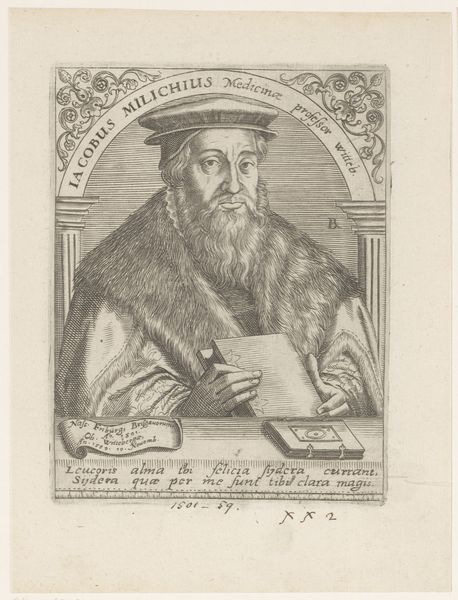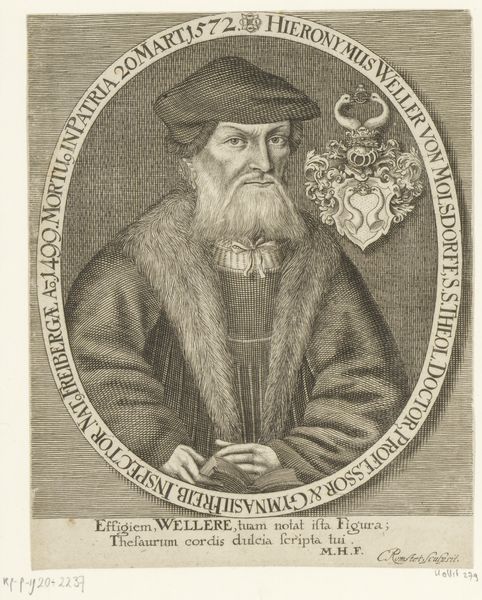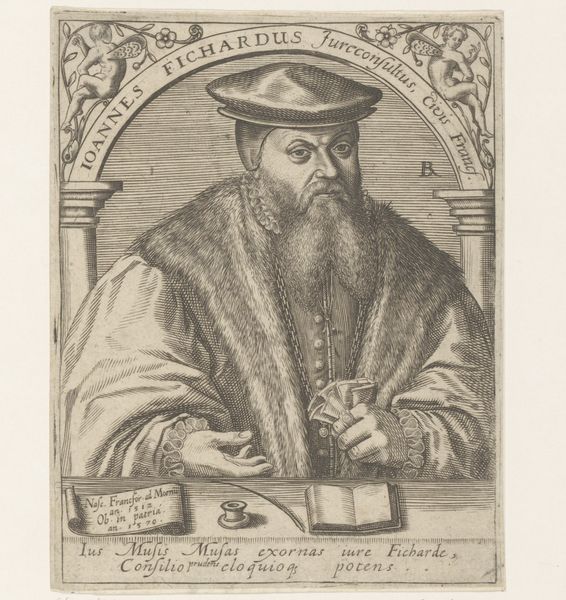
engraving
#
portrait
#
baroque
#
history-painting
#
engraving
Dimensions: height 169 mm, width 116 mm
Copyright: Rijks Museum: Open Domain
This print of Michael Besler was made by Hans Troschel sometime before 1628, using etching and engraving. These printmaking processes depend on metal plates, acid, and specialized tools like burins and scrapers. The fine lines and details you see were created by carefully incising the metal, a labor-intensive process demanding considerable skill. What I find most compelling is how the materiality of the print – the ink, the paper, the very lines that define Besler’s likeness – connect to broader social issues. Printmaking in this period was a crucial tool for disseminating information, fueling the Reformation and the rise of a literate public. Besler, as a theologian, was a figure deeply enmeshed in these changes. This portrait is not just an image of a man, but an artifact of a rapidly changing world, where new technologies allowed ideas to spread like never before. Thinking about art in terms of materials, making, and historical context allows us to see it as more than just an aesthetic object, and to recognize its connection to labor, politics, and consumption.
Comments
No comments
Be the first to comment and join the conversation on the ultimate creative platform.
